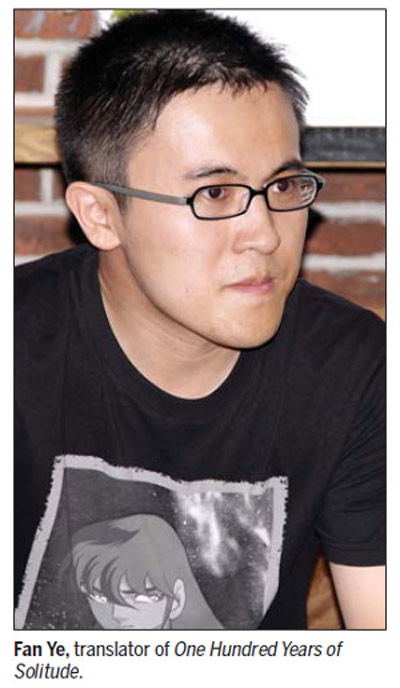Chinese translations often drop tricky references

Li Jihong started learning English at 12. Still under 30, Li has 21 published volumes of translations to his credit. He completed translating Khaled Hosseini's bestselling novel The Kite Runner, about growing up in the pre-Soviet era Afghanistan, into Chinese, in just 10 days. The translation has gone into 17 reprints since it appeared in 2006.
Li, who is translating Neale Donald Walsch's self-help book Friendship with God and F Scott Fitzgerald's early 20th-century classic about chasing the American Dream, The Great Gatsby, almost simultaneously, has also picked up a fair share of criticism along the way.
The Kite Runner has been pulled up for ironing out the cultural bumps into a silky smooth read, dropping politically contentious references and stripping words of their Islamic/religious connotations - translating the burqa as the Chinese equivalent of the long gown (chang pao), for example.
Li, of course, robustly defends his choices.
"Some would render 'salaam alaykum' (the standard Islamic greeting) into 'an sai liang mu er lai kun' and call it a faithful translation. But I just won't do it. The seven Chinese characters are not a meaningful phrase to me," he says.
While some of the political references in the original were deleted or modified in keeping with General Administration of Press and Publications restrictions, and therefore were beyond Li's control, Li's approximation of generic Afghan ideas into their familiar Chinese counterparts has drawn mixed reactions, most notably on the website Paper Republic, after Bruce Humes published his interview with the translator.
Asked if he did not want his audience to work too hard figuring out what was going on, Li was a bit defensive.
"I'm too busy to worry about what my readers would think while reading my translation. I run a small publishing business, and finish four or five works per year," he says. "I am not a newcomer to this profession. I don't need praise to confirm myself as a qualified translator."
In marked contrast Fan Ye, who has just launched his translation of Gabriel Garcia Marquez's One Hundred Years of Solitude - the book's first Chinese version approved by the author - seems keen on retaining the original syntax, cadence and punctuation.
The Peking University professor of Spanish says this is in deference to his readers, who, he believes, would want to pick up a translated work because "they'd like to taste some thing 'foreign'" in the first place.
He has tried to avoid using Chinese idioms that are too culture-specific. He has recast the puns in the original, in Chinese.
In the parts where Marquez is paying a tribute to his eminent predecessor poets, Fan tries to replicate the original form of the lines, in Chinese.
Of course, such strict adherence to the original structure works only up to a point. For instance, "sentences in the Spanish text have too many subordinate clauses, which will be weird to read in Chinese," Fan says.
That's when he flips for a smooth flow of the text over "loyalty" to the original.
At the end of the day, as Li Jihong says, "A translation is not the original work. It has its own function and destiny."






















